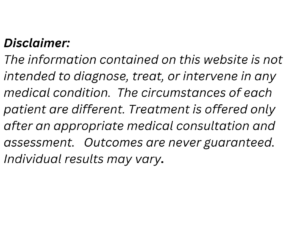Irritable bowel syndrome (IBS) is a common disorder that affects the large intestine. Signs and symptoms include cramping, abdominal pain, bloating, gas, and diarrhea or constipation, or both. IBS is a chronic condition that you’ll need to manage long term.
In Western countries, IBS seems to affect women twice as often as men. IBS is very common, occurring in up to 15 percent of the United States population. It’s the most common disease that gastroenterologists diagnose.
There are four subcategories of IBS, each with equal prevalence
- Mostly diarrhea and abdominal discomfort (IBS-D).
- Mostly constipation and abdominal discomfort (IBS-C).
- Alternating loose stools and constipation with abdominal discomfort (IBSmixed).
- Undefined subtype (IBS-U) — symptoms vary.
There are currently no laboratory tests or imaging tests to diagnose IBS. It’s a clinical diagnosis based on the presenting signs and symptoms.
How does an Integrative approach to care help to support those suffering with this disease?
The nervous system in the intestines has so many nerve endings and neurotransmitters that it has been referred as the “second brain. Studies have also confirmed the connection between the brain and gut, called the Gut-brain /braingut axis. An integrative medicine approach combines various healing modalities specifically tailored to the individual seeking care. Each modality in singularity or in a synergistic manner help to eliminate or alleviate symptoms, place the syndrome in remission, and or slow its progression.
Nutritional and Lifestyle Support
It has been known that eating certain foods can make the symptoms of IBS worse. Some of the latest thinking about IBS helps explain why food that caused no problems in the past may now cause distress.
There is an approach to help heal the intestine, so that it works more normally. These Steps include: 1) removing foods that irritate the lining of the intestine, such as gluten, dairy, and some nightshade vegetables, 2) replacing agents for digestive support – including pre, pro, and post biotics, and digestive enzymes, 3) reinoculating with friendly bacteria and the foods they need to grow, such as including fermented foods, especially non-vinegar based options, and 4) repairing the lining of the intestine with specific foods, and supplements.
- Sleep: Getting 6 to 8 hours of restful, restorative sleep may help to minimize the symptoms of IBS.
- Chinese Medicine and Acupuncture: In Traditional Chinese Medicine (TCM) IBS has always existed, and has different categorizations in TCM – Xie Tong, painful diarrhea, Fu Zhang, abdominal distention, Bian Bi, constipation.
One TCM differential diagnosis is “Liver-Spleen Disharmony” where the main symptoms are abdominal pain and painful diarrhea, aggravated by stress, or emotional upset.
After careful diagnosis your integrative medicine doctor will create a customized TCM treatment protocol which is integrated with other healing modalities to ensure the best possible outcome for relief from distressing symptoms. Treatment sessions may include a combination of acupuncture, Chinese Herbal prescription, Moxibustion, and supplements. Additionally, labwork may be ordered, and other diagnosis tests o assess nutrient profile and any other possible concerns.
Neutraceutical Support
Your integrative medicine provider may prescribe appropriate supplementation depending on the patient’s nutrient deficiencies, or other nutritional needs, tin order to correct such deficits, or to support a healthy gastrointestinal system, and immune system.
Exercise
Mild physical exercise such as brisk walking, yoga, etc., has also been found to help rid the body of gas and reduce bloating. A recent study suggests that exercise may help lessen the severity of symptoms of IBS, especially for people whose main symptom is constipation. Women with IBS who are more physically active have reported fewer and less severe daily symptoms. It greatly helps to find an exercise activity that you enjoy.
If you or someone you know is suffering with IBS, we are here to help.
If you still have questions or need more information, give us a call at (760) 637- 5069 or email us and we’ll be happy to have a conversation around how we may help.







